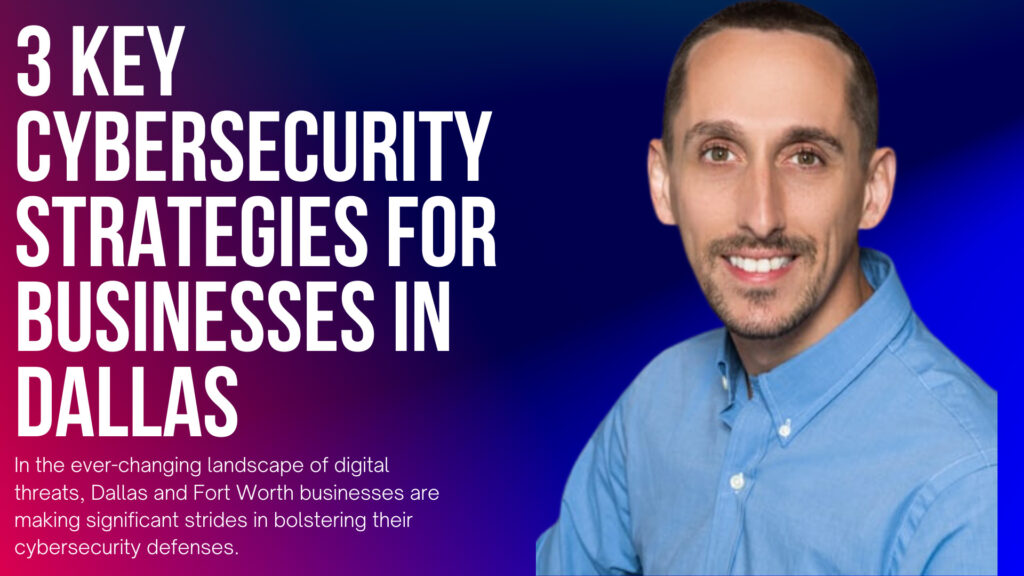3 Key Cybersecurity Strategies for Businesses in Dallas
In today’s digital world, businesses in Dallas are increasingly prioritizing cybersecurity to protect their valuable assets and sensitive information from cybercriminals. This article will explore three pivotal ways in which these organizations are evolving their cybersecurity measures, ensuring the safety of their data and maintaining a strong competitive edge. By adopting cutting-edge technologies and practices, Dallas-based companies are paving the way for a more secure future in the digital landscape.
1. Emphasizing the Importance of Employee Training and Awareness
One of the most significant changes in cybersecurity strategy is the increased emphasis on employee training and awareness. Companies are realizing that their workforce plays a crucial role in ensuring the safety of the organization’s digital assets. To counteract the ever-evolving threat landscape, businesses invest heavily in educating their employees about cyber threats, social engineering tactics, and best practices to maintain security.
This new focus on training includes comprehensive workshops and ongoing educational programs, which cover a wide range of topics such as password management, recognizing phishing attempts, and secure file sharing practices. By fostering a culture of security awareness, businesses are empowering their employees to become the first line of defense against cyber threats.
2. Implementing Multi-Factor Authentication (MFA) for Enhanced Security
Another key evolution in cybersecurity strategies is the widespread adoption of multi-factor authentication (MFA) as a standard security measure. MFA is a method that requires users to provide two or more independent authentication factors, such as something they know (e.g., a password), something they have (e.g., a security token), or something they are (e.g., biometric data). By implementing MFA, businesses can significantly reduce the risk of unauthorized access to their digital assets and systems.
In addition to providing an added layer of security, MFA has also proven to be a highly effective deterrent against various cyberattacks, such as password spraying and credential stuffing. By making it more difficult for attackers to gain unauthorized access, MFA helps to safeguard businesses’ valuable data and critical systems.
3. Adopting a Zero-Trust Security Model for Robust Protection
A third notable shift in cybersecurity approaches is adopting a zero-trust security model. This model is based on the premise that no user, device, or system should be trusted by default, regardless of whether it is internal or external to the organization. By implementing a zero-trust framework, businesses can ensure that every access request is authenticated, authorized, and encrypted before granting access to sensitive resources.
The zero-trust model has been widely recognized for its effectiveness in protecting businesses against internal and external threats. Organizations can detect and mitigate potential risks by continuously monitoring and analyzing user behavior before they can cause damage. Moreover, businesses can significantly reduce their overall attack surface by limiting access to sensitive data and systems only to those who genuinely need it.
Conclusion
In conclusion, businesses in Dallas are actively evolving their cybersecurity strategies to stay ahead of the ever-changing threat landscape. By prioritizing employee training and awareness, implementing multi-factor authentication, and adopting a zero-trust security model, these organizations are taking proactive steps to protect their digital assets and maintain a strong competitive edge. As cyber threats continue to grow in complexity, businesses need to remain vigilant and adapt their security measures to ensure their operations’ ongoing safety and success.

